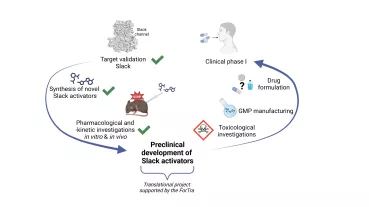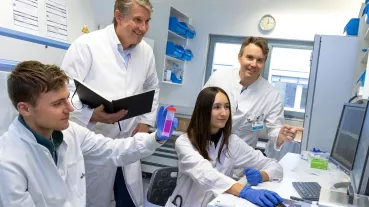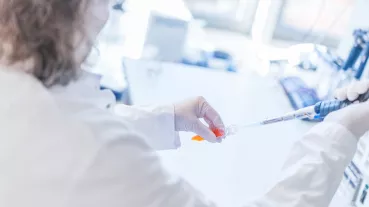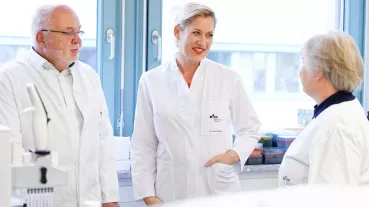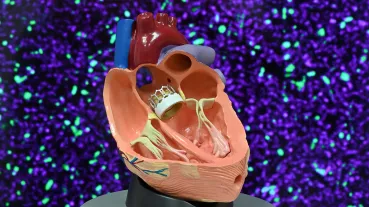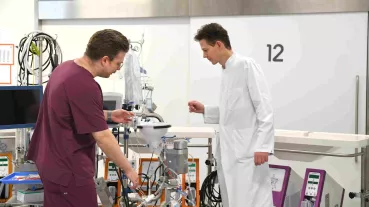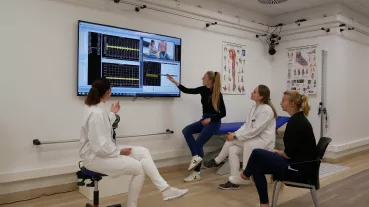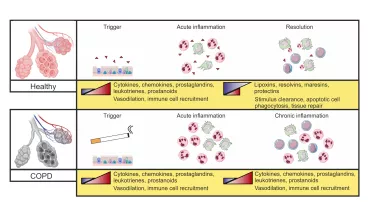CCL25-based tissue regeneration for the treatment of osteoarthritis
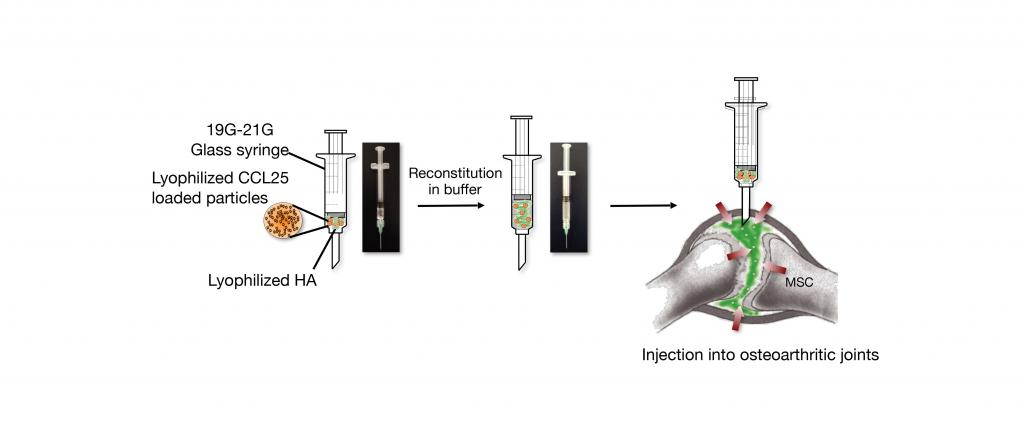
CCL25 (C-C motif chemokine ligand 25) was identified as a potent biological attractant for mesenchymal stromal cells at Charité – Universitätsmedizin, Berlin. Mesenchymal stromal cells are well known for their anti-inflammatory and tissue regenerative properties. However, production and transplantation of cells are expensive and require complex logistics. Application of chemokines for local recruitment of endogenous MSCs towards degenerated tissue could be a cost-effective alternative. Preclinical intra-articular injections of CCL25 have shown a dose-dependent, significant improvement of 28% in histological OARSI-score (microscopical cartilage analysis) compared to standard-of-care hyaluronan injections.
For local injection of the chemokine, CCL25 is encapsulated in resorbable PLGA (poly(lactic-co-glycolic acid) and suspended in hyaluronan. This formulation leads to a delayed intra-articular release to allow cell mobilization for a longer period of time and to avoid repeating injections for the patient.
The novel regenerative approach is expected to improve insufficient natural healing processes in joints of osteoarthritic patients and to stabilize and restore cartilage tissue quality. It may reduce further disease progression and thereby avoid joint replacement by prosthetic arthroplasty.
During a first preceding translational research funding support by the ForTra gGmbH for research transfer of the Else Kröner Fresenius-foundation, in vitro studies on human tissue models had been performed to evaluate potential risks and unwanted (side) effects of this novel biological substance. These initial studies revealed no indications for neoplastic transformation of CCL25-treated cells in the particular tissues. And within the relevant dose range, no other negative effects on cartilage tissue was observed.
Here you can get further information.
